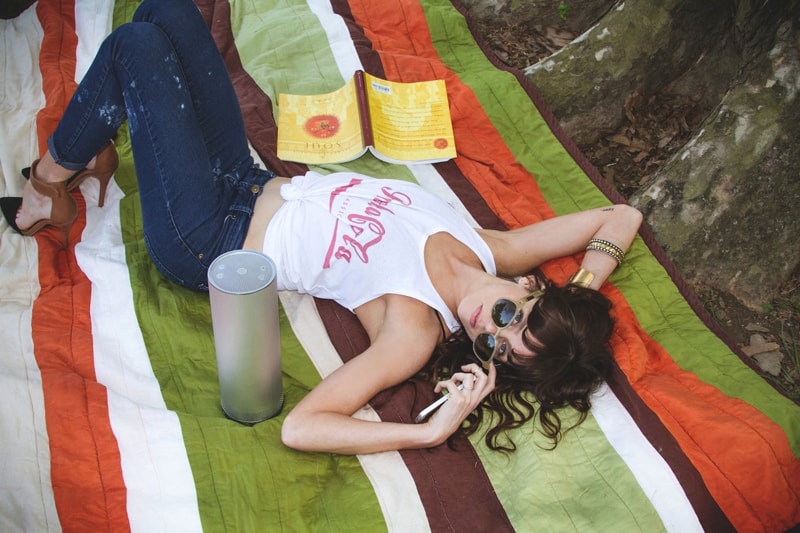
This would also make it easier to do a true comparison, keeping all variables the same. It also became clear that the room can hugely impact your opinion of the speakers, and therefore it is always preferable to try them in your own space. Magazines/reviewers/professional audio engineers I respect sometimes had polar opposite opinions **cough ** Genelecs **cough** Marmite **cough**.
#MUSIC SHELF STUDIO SYNC PROFESSIONAL#
Speaker choice truly is a personal preference thing when it comes to the difference between various professional audio brands. But I thought I should spend some time researching and reading reviews of other brands just in case.Īfter hours of internet browsing, I soon realized that although there are speakers that are clearly better than others within the same brand, and some brands that are favored by bigger professional studios, it wasn't quite as black and white as I had hoped.
#MUSIC SHELF STUDIO SYNC UPGRADE#
Of course, my first thought was to just get some bigger Genelecs as they are what I've been used to at home (plus the studio I used to work in also used Genelecs) – I could also potentially use my current speakers as rears and minimize my costs when I eventually upgrade to 5.1. I now had a bespoke soundproofed and well-treated room here I could now play things LOUD. I didn't need to buy a whole load of extra gear as I had already been working from home a few years, however, the new studio was a lot bigger than our spare bedroom, and my Genelec 8010s just weren't going to cut it.

Well, to be strictly accurate, I paid other people to build a sound studio in my garden. Last year I built an audio post-production sound studio in my garden. For those of you who don't follow me on any of my social media channels, I will fill you in. It is actually based in Fort Worth.At last, here it is, my studio monitor speaker shootout.

“We’re fulfilling pitches on a weekly basis where clients are sending us a Jerry Lee Lewis song and saying, ‘We need something like this.'”ĬORRECTION: An earlier version of this article listed Musicbed as being from Dallas. He has seen the same demand for music that sounds like it came from the Sun era. We found a way to beat those catalog companies at their own game.” “Then they’d turn to catalog places that recreate and re-record to get that sound. “When they wanted that song from ’50s, they had to pay a lot and it was a hassle to get 100 percent of the rights,” he says. The ease of licensing at Musicbed has Brace hoping licensees will pick Sun’s historical music over imitations. “If we can get some of these unheard and long lost tracks licensed, maybe it will get some attention back to the artist and we’ll have more incentive to put it on iTunes, Amazon and other places,” says Brace.īut sync licensing is also a world of unknown, off-brand music with made-to-order sounds, moods or styles. In an era of Shazam and quick online searches, viewers can easily discover songs licensed for use in television, film and even online. Sync licenses total an estimated $900 million annually but also have the ability to breathe life into an artist or song. “Some of it is from people that walked in off the street, recorded a few songs and got some copies. Because the label hasn’t invested in mastering its entire 8,000-song catalog, some of the 1,100 songs available through Musicbed can’t even be found at online stores. Beyond the stars are many lesser-known artists such as gospel singer Georgie Boy, soul singer Len Wade, and Rockabilly Hall of Fame inductees Alton & Jimmy.

“The heart of it was to bring back some of the music that’s been sitting on the shelf for a long time,” says Brace. Now Brace is hoping Musicbed will help revive parts of Sun’s archives. With the help of agents, Sun songs have recently appeared in episodes of Breaking Bad and Mad Men as well as television commercials and, recently, the trailer for the motion picture “Joy.” Many artists needed no introduction, but Brace took the opportunity to show Sun has more than familiar Johnny Cash tracks. Over the last 3 years, Brace has traveled to New York, Los Angeles and Chicago, pitching the label’s catalog to music supervisors, ad agencies and producers. “We feel like it has a second life it’s about to walk into.” The partnership also represents five-year-old Musicbed’s first deal for a partial catalog of a label, according to founder and CEO Daniel McCarthy. While Musicbed does not have an exclusive on the 1,100 Sun tracks, it is the only place the tracks can be licensed online. Sun Records vp Collin Brace calls the partnership “a big leap forward” in the labels efforts to reach licensees.

David Crosby Was Working on New Music on the Day He Died: 'He Hadn't Lost the Fire'


 0 kommentar(er)
0 kommentar(er)
